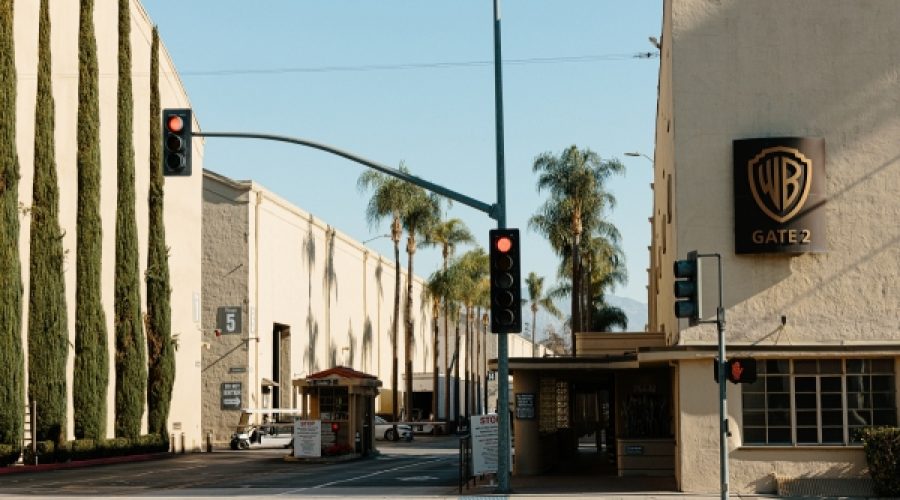Warner Bros. Sale Shakes Hollywood: What This Means for Entertainment Investors and Business Owners
In 2019, Hollywood bid farewell to 20th Century Fox after 84 years as an independent studio, marking the end of a proud legacy and significant job losses. Yet, the grief was tempered, soon transitioning into acceptance.
This week, a similar but far deeper sorrow has returned as Warner Bros., the venerable 102-year-old studio affectionately known as Warners, is heading to auction. This news has sent shockwaves through the industry, as Warner Bros. was widely expected to endure and thrive in the evolving media landscape, unlike some of its legacy peers.
Oscar-winning producer Dan Jinks expressed the sentiment shared by many: “To lose Warners as a stand-alone studio would be heartbreaking…one of the biggest, most reliable studios could get consolidated?” The Ankler, a respected entertainment news outlet, urgently appealed to Hollywood unions to intervene, with Richard Rushfield warning that “disappearing Warner Bros. into another studio has to be anathema to all we’ve got.”
Warner Bros. has changed ownership multiple times over the decades. AT&T acquired it in 2018 through an $85.4 billion deal for Time Warner, with Discovery taking over in 2022. Despite these shifts, there was optimism after Discovery’s commitment to rejuvenate the studio, boost production, and prioritize theatrical releases. Warner Bros. Discovery CEO David Zaslav frequently celebrated the studio’s heritage, honoring its founders—the Warner brothers.
This spring and summer marked one of Warner Bros.’ most successful box office streaks, highlighted by seven consecutive hits, including Ryan Coogler’s “Sinners,” a strong contender for the upcoming Academy Awards.
However, on Tuesday, Warner Bros. Discovery announced it was exploring the sale of part or all of the company, attracting interest from Paramount, Comcast (owner of Universal Pictures), and Amazon Studios (owner of Metro-Goldwyn-Mayer). This development makes the possible end of Warner Bros. as an independent studio a pressing reality.
A veteran screenwriter described the industry mood as one of “doom, gloom, and rage.” The Writers Guild of America issued a statement condemning any merger involving Warner Bros., calling it a “disaster for writers, for consumers and for competition,” and pledged to work with regulators to block such a merger.
Warner Bros. is emblematic of Old Hollywood’s glamour. It was home to stars like Bette Davis and James Cagney and produced classics including “Casablanca,” “The Maltese Falcon,” “Bonnie and Clyde,” “Dirty Harry,” “The Shining,” and “Chariots of Fire.” Many industry professionals regard themselves as part of its enduring legacy.
Film historian Sam Wasson noted that Warner Bros. resonates deeply because it was once led by executives who championed filmmakers—Bob Daly, Terry Semel, Alan Horn, and Steve Ross. He also highlighted the iconic Warner Bros. lot in Burbank, with its historic water tower and garden paths, as a tangible symbol of Hollywood’s magic.
Though 20th Century Fox also had a storied history—with Marilyn Monroe’s rise, classics like “The Sound of Music,” and the debut of “Star Wars”—by its 2019 absorption into Disney, it was largely seen as a fading entity, destined eventually to be sold by Rupert Murdoch’s unsentimental ownership.
Fox’s demise occurred during a relatively healthy entertainment economy, fueled by a streaming boom and a record-breaking $12 billion North American box office in 2018. Now in 2025, the entertainment industry faces its worst summer at the box office since 1981 (excluding pandemic years), widespread production shifts out of California for cost and tax reasons, and emerging challenges such as artificial intelligence and censorship concerns.
Hollywood’s outlook was already grim, and Warner Bros.’ uncertain future has deepened the industry’s distress.
Larry Gordon, former president of Fox Entertainment Group and producer of classics like “Field of Dreams” and “Die Hard,” summed up the feeling: “I hate this… With Fox gone, this is like another death in the family.”
This report originally appeared in The New York Times.
Special Analysis by Omanet | Navigate Oman’s Market
The potential sale and consolidation of Warner Bros., a pillar of Hollywood’s legacy, signals a major shift in the global media landscape that could limit creative diversity and intensify market concentration. For businesses in Oman, this underscores the importance of investing in local content creation and digital entertainment, which can capitalize on gaps left by major studio consolidations. Smart investors should consider the rising value of regional and independent media ventures as global giants reorient strategies amid industry upheaval.



